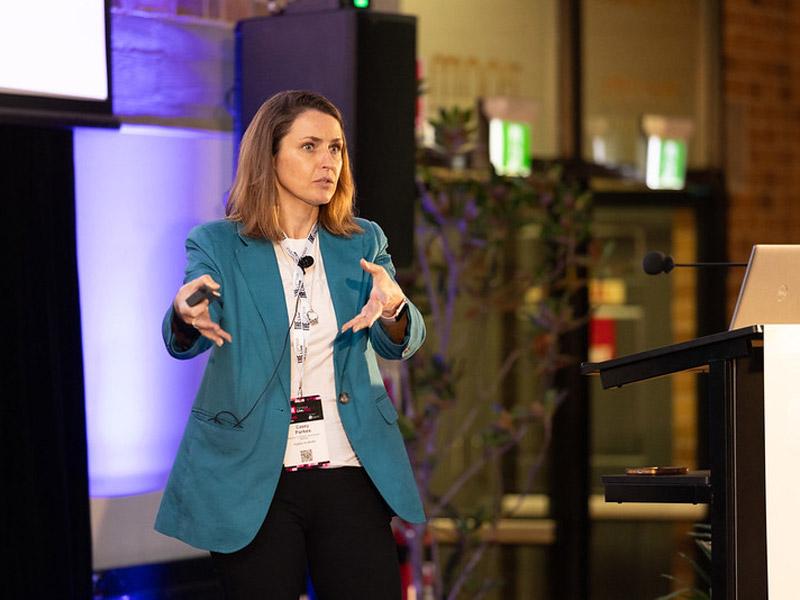When universities made the sudden shift to remote learning during the pandemic, there was a concern that online tools would define student outcomes and that content would simply be uploaded remotely, leaving them to choose what they wanted to learn. The question of what constitutes quality in learning now that universities are moving into a new hybrid era of delivery was posed by Tania Aspland, emeritus professor and vice-president (academic) at Kaplan Higher Education, at the 2024 THE Campus Live ANZ event.
“The defining factor is the endpoint – we need to map backwards,” Aspland explained. “As academics, we don’t give our wisdom away to the tools but bring them together with our wisdom to give students learning choices and flexibility. It’s a collaborative journey to get to the point where students can move on to their next phase.”
Casey Parkes, director for curriculum, learning and teaching at Kaplan Australia, said that inclusivity and engagement were central to achieving this goal. “We’re still some way away from including everybody in the online experience. We need students to engage with the content of the learning process. That might mean flipping the traditional lecture approach,” Parkes said. “We need to challenge ourselves as educators to facilitate learning in different ways.”
Aspland gave the example of different cohorts learning through Kaplan: postgraduates seeking an accountancy qualification through an evening course will require a different approach to international students learning about critical thinking.
“We need to think about the congruence and alignment between the cohorts we’re teaching and how they learn or prefer to learn,” she said. “How can online tools facilitate this?” Furthermore, different tools might be more suitable depending on the desired learning outcome or topic. A quiz might work for some aspects of learning and asking students to develop an argument using AI might be better suited for another.
The rise of generative AI has added another layer of complexity to discussions around the quality of online learning. “If we’re fearful of it, it will control us,” said Aspland. “A lot of lecturers are jumping to conclusions very quickly when we need to look at the other side of the coin. Are we preparing students to use these tools constructively and intelligently? If we immediately jump to academic integrity problems then we have ourselves to blame.” With employers increasingly developing their own AI tools and embracing the use of generative AI in day-to-day work, academics have a duty to prepare students to use these tools effectively and responsibly, she added.
The panellists concluded the session by sharing some techniques that academics can use to ensure students get the most out of online and blended learning. “We need to think about community building, connecting with students and how we can do this in today’s attention economy,” Parkes said.
Problem-based learning can be a way to engage with a class, Parkes said, as can involving students in the choice of lesson content. Other strategies could include structured games, storytelling and universal design for learning that ensures the lesson delivery works for everyone, not just neurotypical students.
The speakers:
- Tania Aspland, emeritus professor and vice-president (academic), Kaplan Higher Education
- Casey Parkes, director for curriculum, learning and teaching, Kaplan Australia
Find out more about Kaplan.


comment